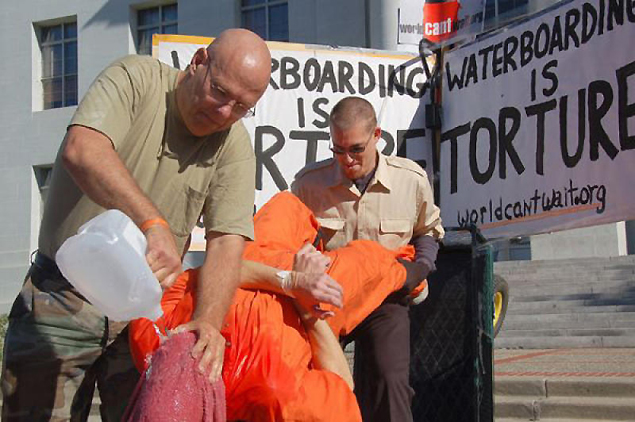
Torture is probably more like the weather than anything else around. It is, as US editorialist Charles Dudley Warner wrote (Mark Twain repeated it), "a matter about which a great deal is said and very little done".
Recently, this has begun to change, at least about torture and mistreatment of prisoners and detainees.
When a politician said that the 9/11 attacks changed everything, it was only slightly hyperbolic. It certainly changed the outlook on torture. Ever so slowly, people are peering into the torture chambers, and it is pretty gruesome.
Catalysts in the changing opinion including in Thailand are waterboarding, Lord Voldemort and a nasty Saudi Arabian, Zayn al-Abidin Muhammed Hussein Abu Zubaydah. He was the first significant al-Qaeda operative captured in the 2001 US-British invasion of Afghanistan.
Very long story short. Lord Voldemort welcomed a secret US safe house. Abu Zubaydah was brought here for interrogation, openly referred to as a guinea pig for “techniques”. The FBI were in charge for a while, and then the CIA took over and began using what it calls Enhanced Interrogation Techniques (EIT) including waterboarding and other, even more questionable skills. These are now grouped as torture.
For the last several years, the US public has agonisingly but inexorably squeezed out details of all this. Hundreds of documents covering tens of thousands of pages are available, and last week a new collection from the CIA was declassified.
Reversely, the Royal Thai Armed Forces and police have not been releasing any details of their interrogation techniques. And there is fast-building public opinion that they should. We shall return to this, but first, an anecdote.
Plenty of people support torture. The currently most-prominent advocate of EITs is The Donald, who believes we mollycoddle dangerous detainees.
Buried in last month’s haystack of new information about post-9/11 technique was a heavily redacted, 12-page Blue Ribbon Panel memo sent in September, 2005, to then-CIA director Porter Goss, who was demanding to know if torture worked.
Mr Goss learned CIA agents and contractors “deemed them to be a great success [which enabled] the US to disrupt terrorist plots, capture additional terrorists and collect a high volume of useful intelligence on al-Qaeda”.
This flies in direct opposition to the very first statement of the US Senate’s disapproving report presented here last year, which blanket-denied all efficacy of all torture. So up to you to decide.
Which brings us back home, where everyone believes torture and other mistreatment is a standard for the military and police.
A couple of weeks ago, the man with the most thankless job in Thailand, Isoc spokesman Col Pramote Prom-in, demurred. Asked if anyone enjoying the hospitality of army interrogation in the deep South was tortured or mistreated Col Pramote was sure they weren’t.
Well, maybe a few “sustained scratches or bruises while trying to escape arrest”, Col Pramote allowed. This brought to mind related statements such as, “No, Mum, we’re waiting to get married”.
Col Pramote was flacking for the military’s second high-profile attack on factual reporting. His Isoc has filed serious criminal charges of defamation and computer misuse against three of the biggest, bravest civil rights defenders in the country. Pornpen Khongkachonkiet, Anchana Heemmina and Somchai Homlaor edited a booklet simply entitled Torture.
Released to the public last Feb 10 in Thai and English, it relates the chilling details of the completely illegal mistreatment of 54 Thais after they were detained, mostly as suspects in the violent insurgency. It tells what happened to them, including some deaths and maiming.
In Isoc’s view — just like in the navy’s view when it unsuccessfully persecuted and prosecuted Phuketwan — is that no mistreatment took place. At all. The public has long rejected that view, partly because it believes the police battered and threatened the two young Myanmar men later convicted of the Koh Tao murders.
The US military and CIA spokesmen used to go through the same litany as Col Pramote. “Torture? Us? That would be illegal!” Several years ago, they were ordered to knock it off and start providing information. And the story has oozed but nevertheless emerged of many sordid details of Abu Zubaydah and hundreds of others.
When police or other security agencies detain or arrest someone, they are fully responsible for the welfare of that person — even “bruises while trying to escape”. Isoc would gain much more respect and credibility if it investigated the illegal acts and reported to the country what actually happened.
